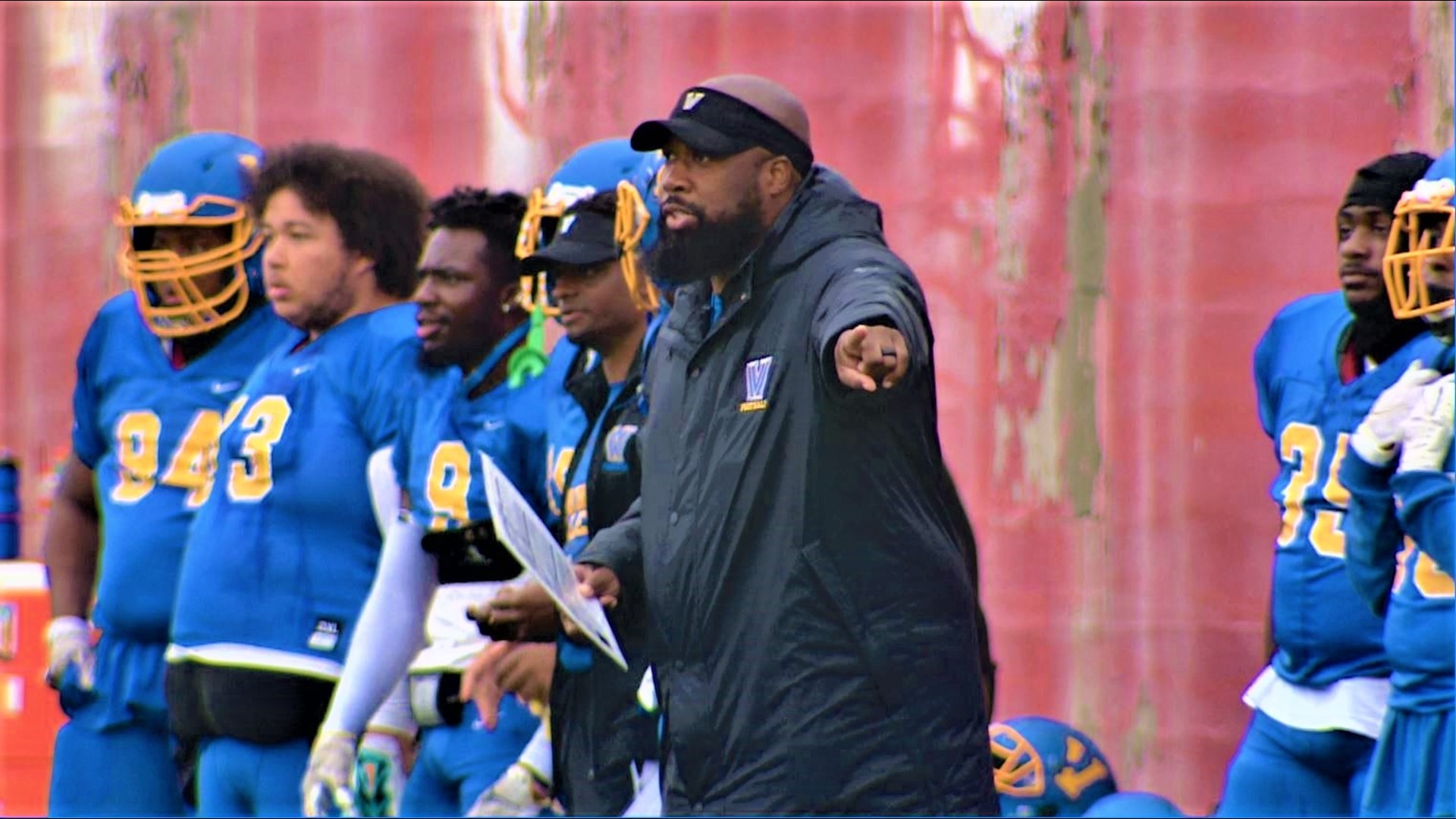ELY, Minn. — A fall rich with colors comes to a predominately white, northern Minnesota, community.
But the season isn’t the only thing changing in Ely.
Vermilion Community College has new head football coach.
“Let's wake up!” Terrence Isaac shouts to his team from the sidelines as the Ironmen warm up before a game.
Shaved head, black beard, introspective, and also, African American – which makes Isaac an outlier in Ely, a community of 3,460 people, that's best known for mining, timber and tourism.

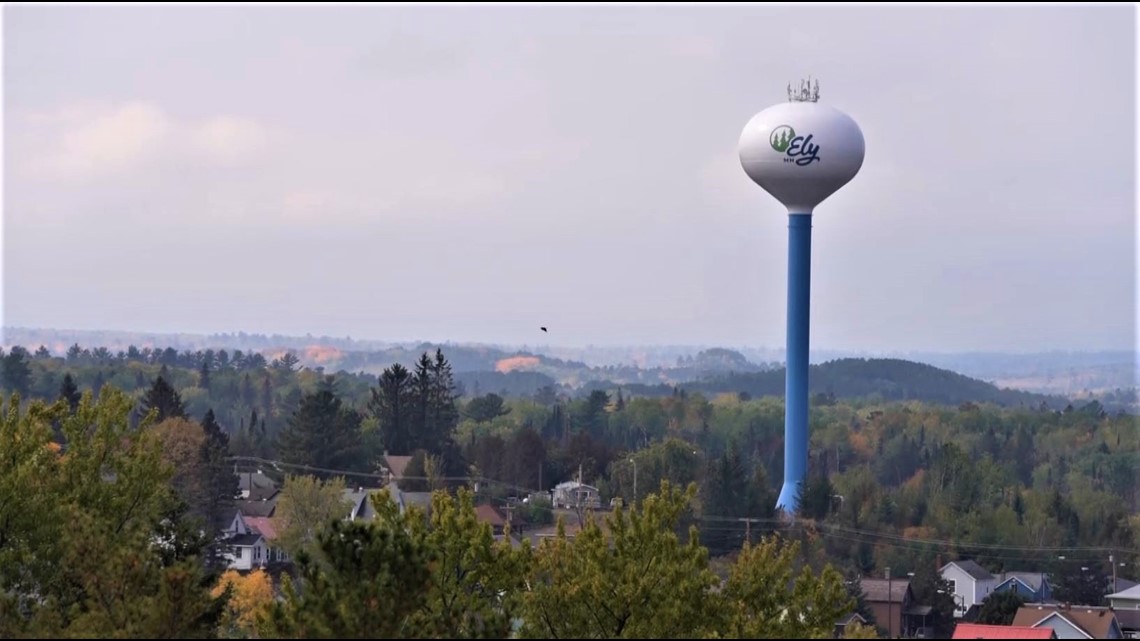
“I see confusion in some of your eyes,” the coach admonishes his team during warm-ups before a game.
The same words could have been used last summer as Isaac’s newly recruited players began arriving in Ely for training camp.
“Pulling into town, I was like, ‘Wow,’” Montario McAfee, recruited over the phone from Kansas City, says.
“Caught me off guard,” McAfee continues. “No Pizza Hut; no McDonald's — none of that.”
During his first stop at Zup’s, the town’s only grocery store, McAfee had to smile at the market’s mom-and-pop quaintness. Zup’s Facebook page sums up the vibe with its profile photo featuring a white-tailed deer and her two fawns walking across the parking lot.
“I even got the pronunciation of the town wrong for the first month,” McAfee says. “I was calling it ‘El.’”
McAfee would not be alone in his fascination with the new surroundings.

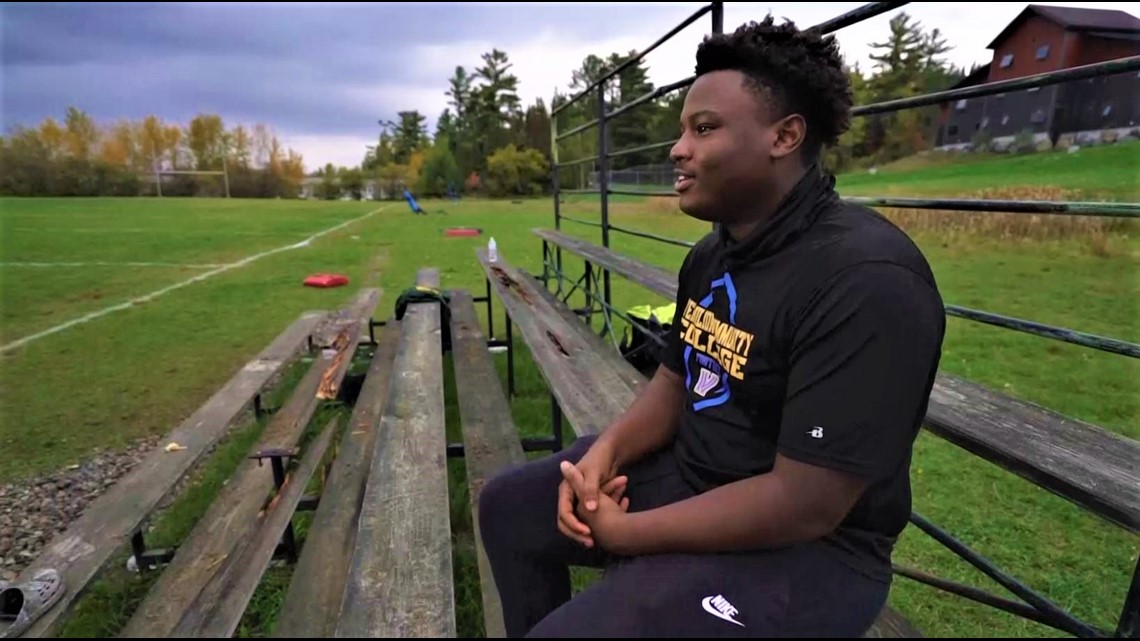
From urban centers to the deep south, players who had only seen Minnesota on a map came to play for Coach Isaac in this northern outpost, separated only by wilderness from the Canadian border.
But Isaac also knows what it feels like to be a fish out of water.
“From Cleveland, Ohio, born and raised,” Isaac says from behind the desk in his cinder block office at VCC.
“I grew up in a household where my dad was very abusive to my mom,” Isaac says.
Outside his childhood home, things were no better.
“Lots of violence, lots of gang activity, shootings — lost a lot of friends along the way," Isaac says.
In high school, football would become a refuge.
Isaac concedes his grades could have been better. No big colleges offered him a spot.
That’s when, “You know, I found out about a place called Ely,” Isaac says with a smile.
Then, on his way to becoming a star receiver on a championship community college team, Isaac scored something more.
“It took me from an environment of violence to an environment of peace,” Isaac says. “This was a place I needed. I needed it so bad.”
How big an impression did Isaac’s two-year stay in Ely make?
Ask his wife, Candice.
“Well, he's always said he wanted to go back to Ely. So, if the opportunity presents itself, ‘I definitely want to go’” Candice Isaac says.

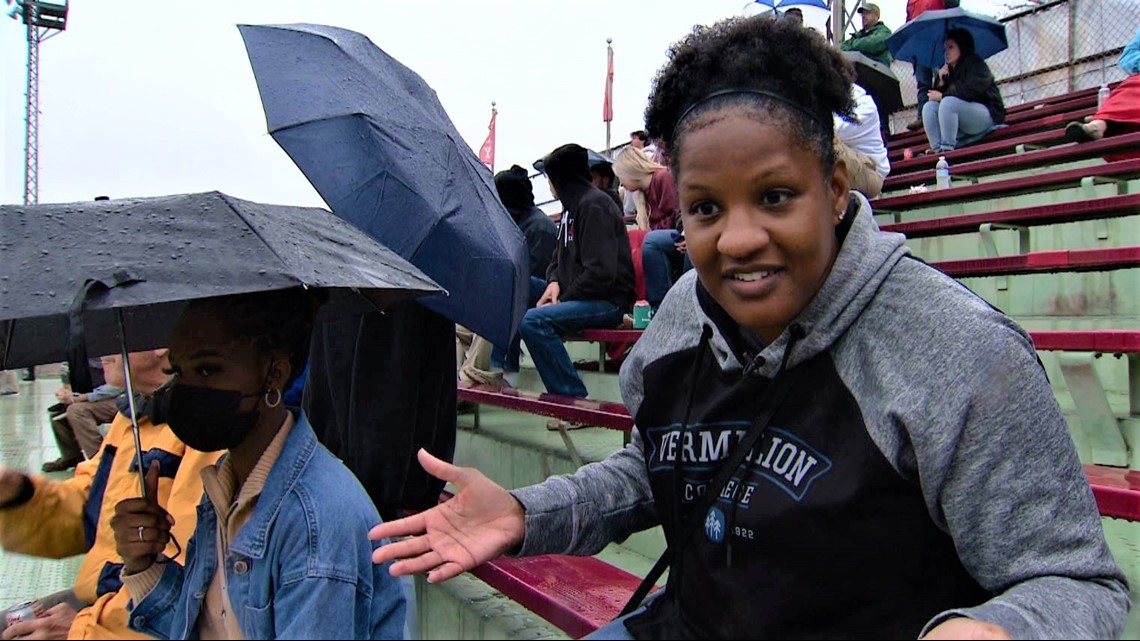
Isaac was coaching late last year at a high school in Shreveport, Louisiana when the call came.
Ely wanted him back.
But Isaac didn't accept the VCC head coach job just for himself.
He wanted it for players like Tyrese Rogers, who Isaac recruited to Ely from Alabama.
“Big culture shock,” Rogers says about his arrival in town.
Carlos Carter came from Washington DC.
“I went fishing for the first time ever out here,” Carter says. “It's so small, I see my teachers in the grocery store, gas station, Dairy Queen.”
That tight interconnectivity between team and community is exactly what their football coach had in mind.
“I want the community to see us, I want the community to know that we're here,” Isaac says.

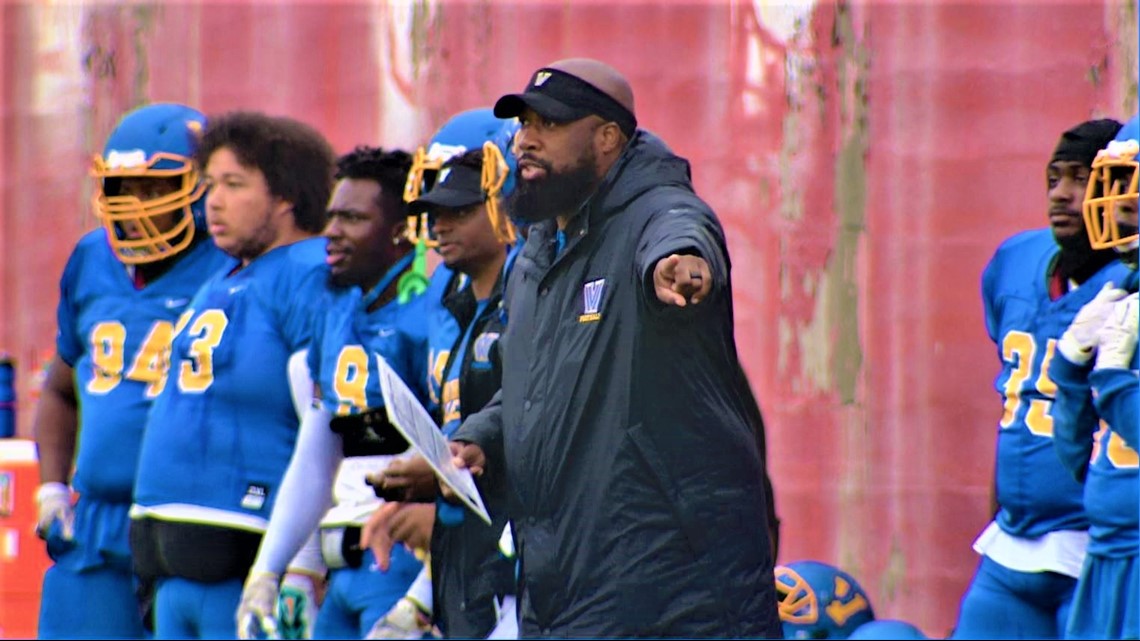
So, at least once a week, Isaac runs his players, not around the practice field, but right through the middle of town.
He also has them volunteering for community projects, like the work they did recently digging soil and building raised wooden beds in Ely’s community garden.
Later that day, a smaller group of players delivered flowers to Ely’s senior home.

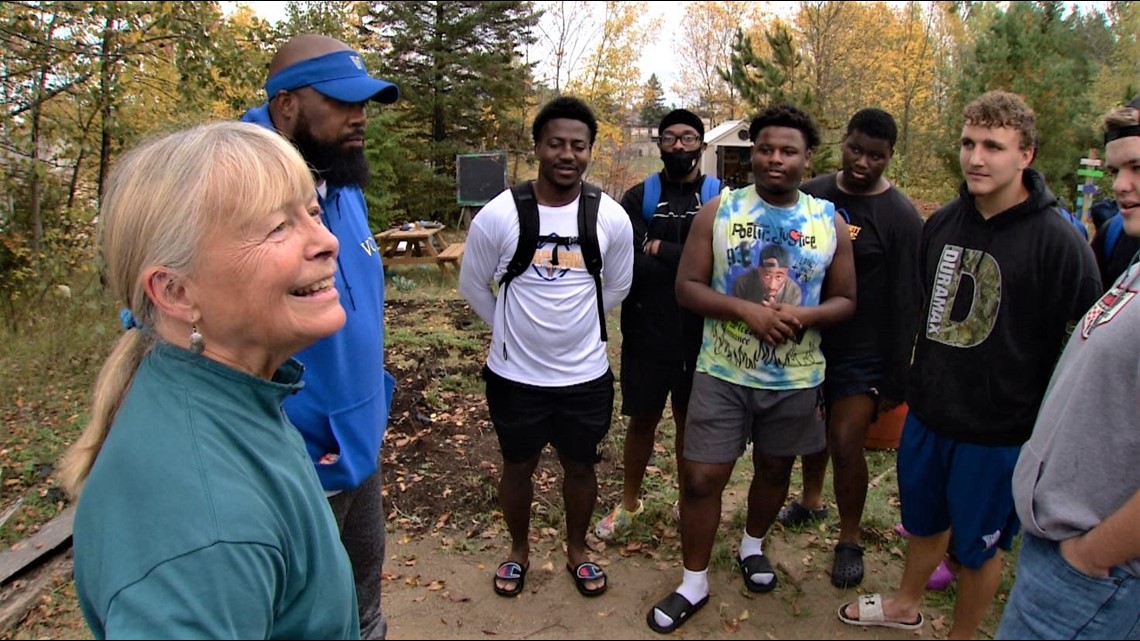
“There's a stereotype on African-American males. So, I want the community to see these guys and see something different, see these are good guys,” Isaac says. “They’re not in town to cause trouble, they’re here to get an education and play football and move on and better their lives.”
Mike Pope, vice commander of the Ely VFW, remembers his first encounter with the team. “I said, ‘Holy Cow, these guys are nicer than I am and more respectful than I am,’”
Pope, who also referees high school football, is used to locker room talk.
“I will tell you the only person cussing up there was me,” Pope says.

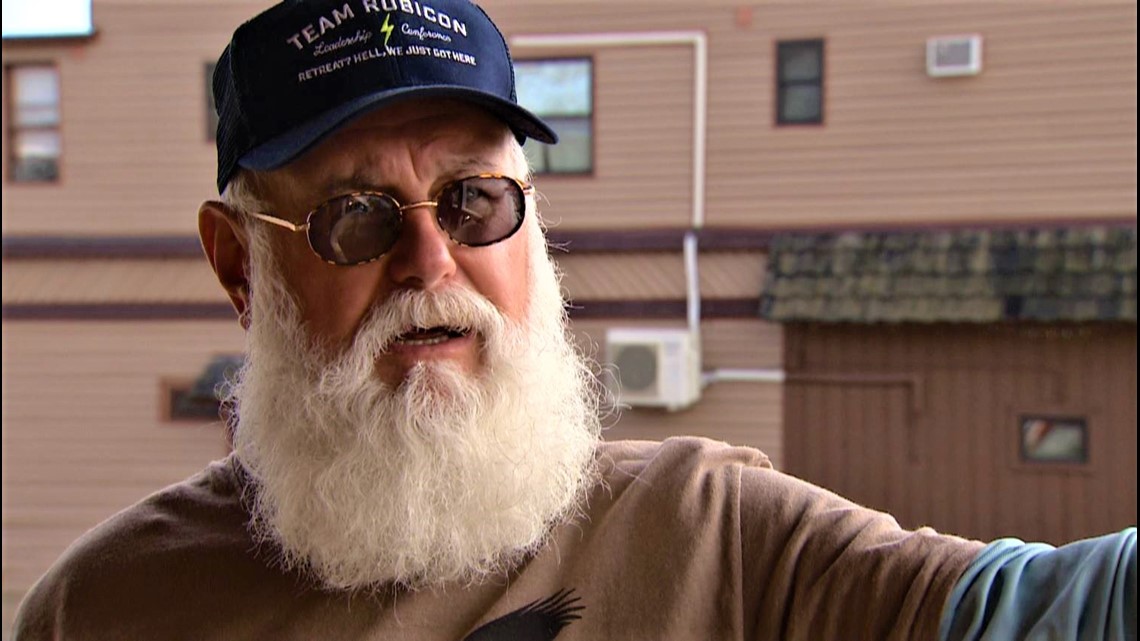
Over the months, the more the team has reached out, Ely has reached back.
On a recent game day, townspeople lined both sides of a city park sidewalk, applauding as players walked between them.
Coach Isaac says the parents of some of his players had reservations about sending their Black sons to a small town in the state that produced the police officer who murdered George Floyd.
Carter had reservations of his own. “You know, we’re going to Minnesota. Everybody knows what goes on about African Americans getting killed by police.”
Coach Isaac assured both players and parents Ely wasn’t like that.
“I went to school there,” Isaac told them. “It’s a town where you can go to sleep at night, mom, you can go to sleep at night, dad, knowing that your kid is going to be okay.”

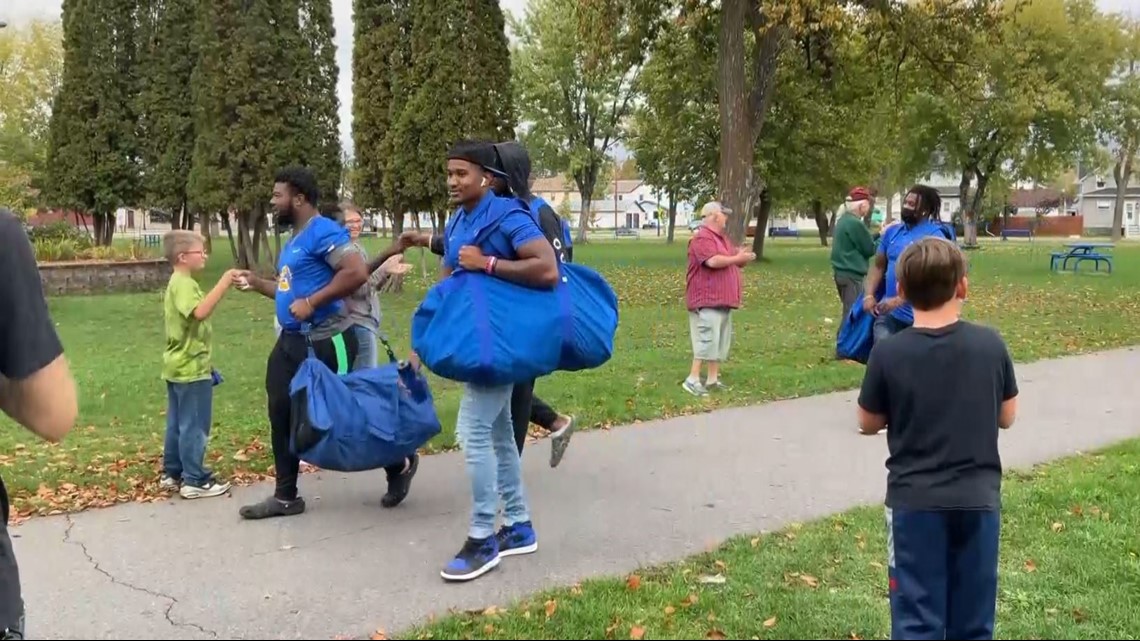
For good measure, Isaac invited Ely's chief of police to welcome his players their first week in town.
Chief Chad Houde’s message to the team resonated deeply with McAfee.
“He's like there's going to be people here who will make your life hard. There's going to be people here who use racial remarks. You give me a license plate number, you give me a name, and I will spend my entire day tracking them down and I'm going to talk to them,” McAfee recalls.
Houde smiled when reminded later of his promise to the players. He says he meant what he said. “Just to say, hey, this is kind of how we do it here.”

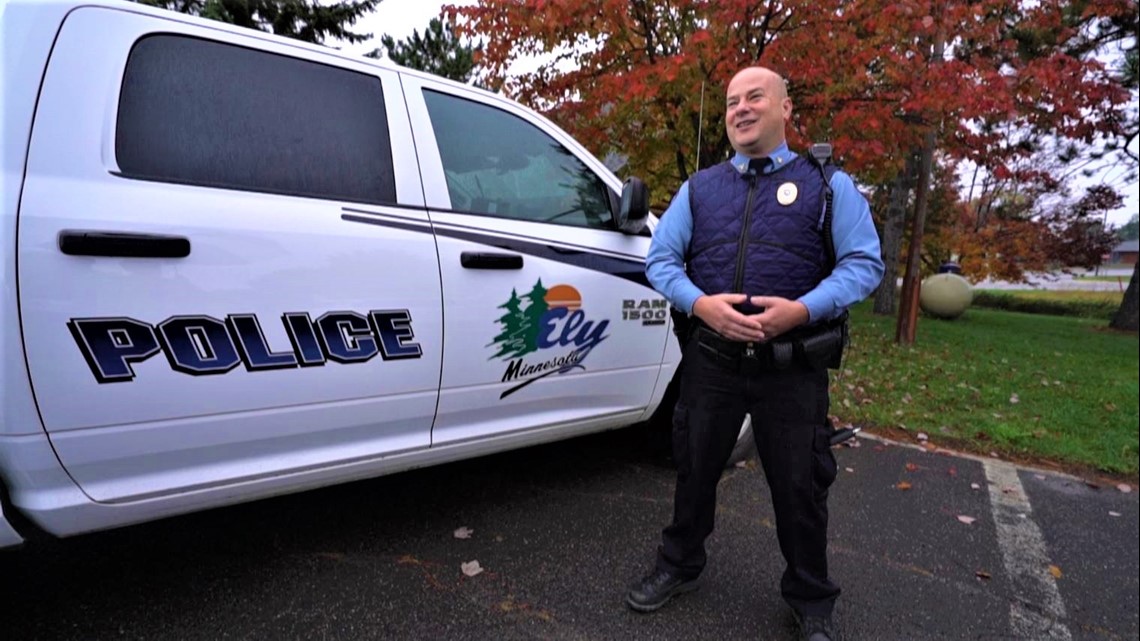
Houde understands that some players arrived in town with a mistrust of police. He believes they’ll find a different relationship with officers in Ely.
“The big thing was just to know that we’re approachable. We have three squad cars; we have seven officers in our town. You’re going to know us,” the chief says.
Ely is still a predominantly white town, but it’s also a community into which a predominantly Black football team is feeling more and more immersed. Never more so, than the day Curt Ebert, pastor at LedgeRock Community Church, baptized several players in Shagawa Lake.
An October dunking in a northern Minnesota lake left Rogers both shivering and smiling. “It's definitely colder than Alabama water,” he said after being submerged.
Speaking of cold, as winter approaches, players can expect a gift of coats, gloves and warm boots, donated by townspeople — an Ely tradition for football players who’ve arrived from southern climates.

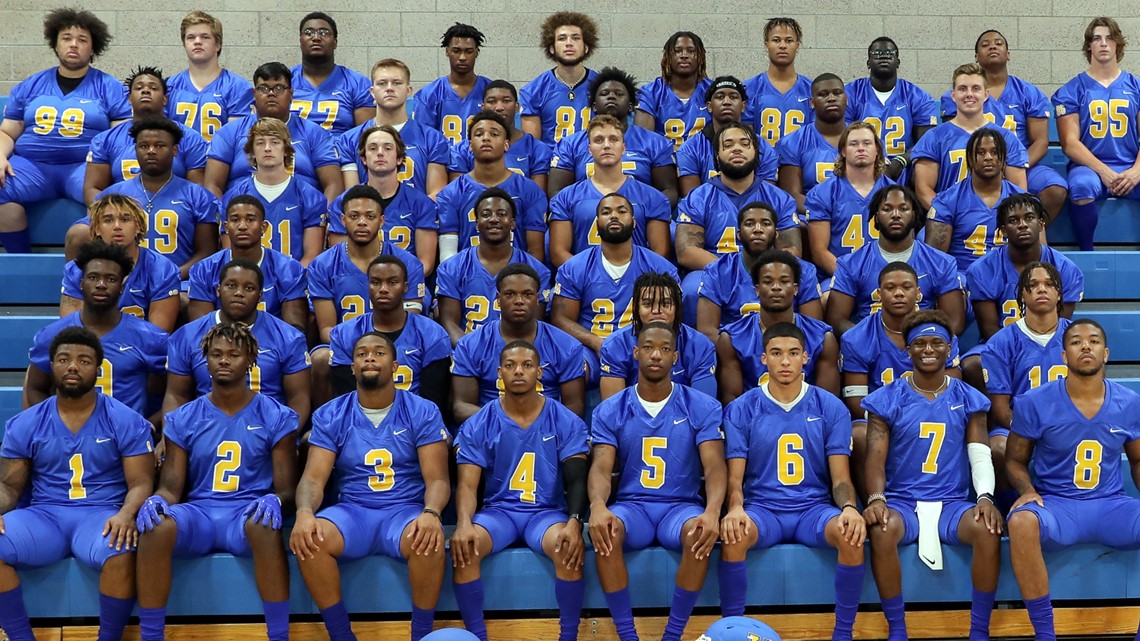
Most of Isaacs’s players are a long way from home, yet, like the coach himself, they are finding a home in Ely, volunteering at community events, waving to people on the street and changing impressions — some of them their own.
“I feel like the town — they’re not just doing it because, ‘We don’t want to feel like we’re being racist,’” McAfee says. “I feel like they are honestly doing it out of the kindness of their hearts.”
On a recent game day, Michelle Zupancich, executive assistant to the VCC provost, sat in the stands cheering loudly and ringing a cowbell.
“I don't have any children who play on the team, but all these kids are our family,” Zupancich says.
More than 20 years after Terrence Isaac found a home in northern Minnesota, another generation of players is finding Ely’s front door is still propped open.
“Ely will always have a place in my heart no matter where I go after this,” Carter says.
Revisit your favorite moments from Boyd Huppert’s Land of 10,000 Stories by subscribing to Land of 10,000 Stories: The Complete Collection on YouTube.
Boyd Huppert is always looking for great stories to share in the Land of 10,000 Stories! Send us your suggestions by filling out this form.

